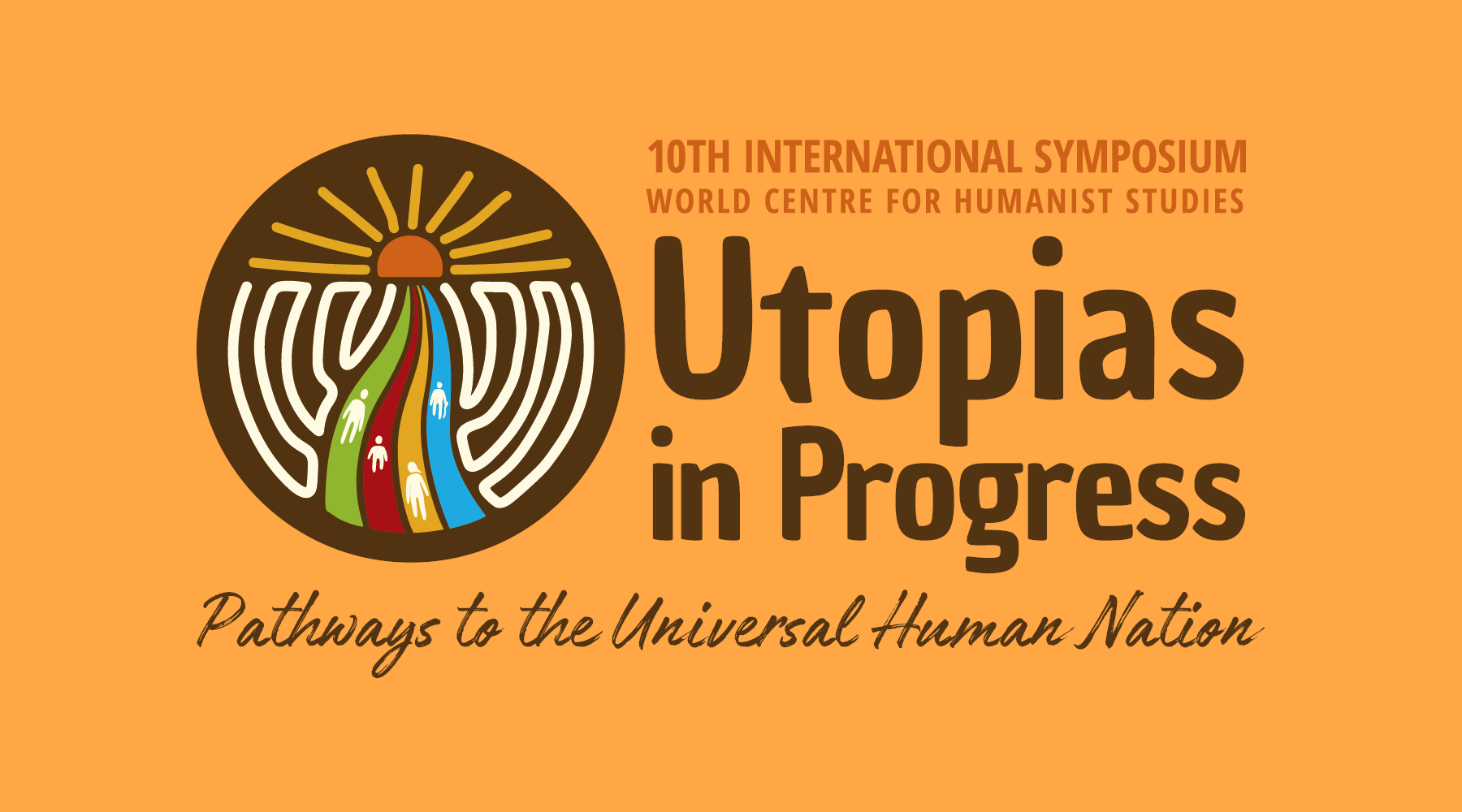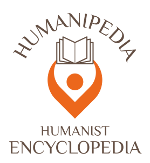Good afternoon (or good morning, depending on the time zone)!
Welcome to the 8th International Symposium of the World Centre for Humanist Studies.
This edition of the symposium is entitled "A New Humanism for a New World - Plural Exchanges from a World in Crisis" because it intends to glimpse, or even define, the future with a pluralistic humanist perspective, in accordance with the multiple and inclusive world in which we wish to live: "multiple in ethnicities, languages and customs; multiple in localities, regions and autonomies; multiple in ideas and aspirations; multiple in beliefs, atheism and religiosity; multiple in work; multiple in creativity", as the Document of the Humanist Movement says.[1]
In fact, throughout history, humanism has taken on various expressions, always having in common, more than a certain philosophy, a basic humanist attitude, founded on six central points, which inspired the social environment and human activity of its time:
1) the positioning of the human being as the central value and concern;
2) the affirmation of the equality of all human beings;
3) the defence of freedom of ideas and beliefs;
4) the recognition of personal and cultural diversity and opposition to all forms of discrimination;
5) the tendency to take knowledge beyond that established at each moment as absolute truth;
and 6) the repudiation of violence.[2]
It is this humanist attitude and the "humanist moments" it has brought about in each culture, even if in different historical moments, that make constructive dialogue between different humanisms possible. It is with this disposition that the World Centre for Humanist Studies (WCHS) organizes this symposium, opening channels of interchange between the current of thought known as Universalist Humanism, to which it is affiliated, and all progressive forces and individuals who feel themselves to be humanists in some way.
Yet, this symposium doesn’t appear from the nothing, it is the most recent stage in a process that began in 2008 with the first symposium, entitled "Ethics in Knowledge", held in the Park of Study and Reflection Punta de Vacas (Argentina), which was followed by subsequent editions:
- In 2010, the II Symposium took place, entitled "Foundations of the New Civilization", which was held in the Study and Reflection Parks, Punta de Vacas (Argentina), Attigliano (Italy), Manantiales (Chile), La Reja (Argentina) and Aloasí (Ecuador), connected to each other.
- In 2012, the III Symposium took place, entitled "A New Humanism for a New Civilization", which had two venues, one in the Toledo Study and Reflection Park (Spain) and the other in the La Reja Study and Reflection Park (Argentina), each one at the entrance to spring in each of the hemispheres, north and south, respectively.
- In 2014, it was the turn of the Fourth Symposium, entitled "Towards the Discovery of the Human- From the World of the Established to Freedom", organised at the Attigliano Study and Reflection Park (Italy) and at the University of Santiago (Chile), on two separate occasions, under the same terms as the previous one.
- In 2016, the V Symposium was held, entitled "The Necessary Human Revolution", at the Attigliano Study and Reflection Park (Italy) and in the city of Asunción (Paraguay), also with sessions staggered in time, similarly to the previous editions.
- In 2018, it moved on to the VI Symposium, entitled "Ploughing New Paths", which was held at the La Moneda de Lima Cultural Centre in the city of Lima (Peru).
- In 2019, the VII Symposium took place, entitled "The Future, a Myth to Build - The Path to the Universal Human Nation", which was held in the cities of Rome, Attigliano and Florence (Italy) and in Porto (Portugal), on the first of two days synchronously and, on the second day, with local programmes.
And so we have come this far.
In spite of the experience of the previous symposium, this is the first one we are doing in a completely synchronous way between all continents and countries, on a worldwide scale, adapting to the circumstances set by the pandemic called Covid-19 and taking advantage of the development of remote communication technologies.
This choice makes perfect sense, however, as humanity is now experiencing a similar situation in all parts of the world.
In fact, the pandemic accelerated the process of globalisation that was already underway, creating a very similar existential situation for all human beings, regardless of their location, despite the different material conditions in each place.
On this subject we wrote about a year ago that, and I quote, "Because of the physical confinement and silence that now surrounds a large part of the population, internal perceptions take up more mental space and we become aware of longings and desires that have been put off, sometimes with a great deal of creativity, but also sometimes with contradiction and violence.
Faced with the proximity of death, individual life and health, as well as that of others, emerge as priorities. The importance of the whole becomes evident, through care and solidarity, and all this is pushing back individualism.
It is in the presence of finitude that beliefs break down. Things happen that we never thought could happen and a certain emptiness appears that makes us see reality in a different way.
(...)
The future, which has become unpredictable, invites us to elaborate new answers, abandoning the linear perspective of the past.
Dark images about the future follow us every day, but the opportunity to produce significant changes in one's own life appears".[3]
"(...)
On the social level we find ourselves with a landscape never seen before, which today is seen by everyone.
The infernal machine that was this system, apparently invincible, is beginning to crack. The gears of the economy grind to a halt and the system of social and economic relations is threatened. The opportunity for a change opens up, a window to a new dawn."
"(...)
What will happen after the pandemic is stopped?
Certainly, there will be a struggle between those who want to achieve a change of system and the elites who will try to maintain their privileges. Humanists are among the first. We aspire to a Universal Human Nation.
The project of the Universal Human Nation can become a reality to the extent that the human being is constituted as the central value. This is a change that must take place in the consciousness of large swathes of the population, so that differences in ethnic, national, ideological, religious, social class, etc., become secondary factors in the face of the essential equality that belonging to the human species presupposes.
We believe that the events taking place these days favour the process of change mentioned, since, on the one hand, they bring the urgencies of everyday life to a standstill, enabling a state of reflection, and, on the other, they make it clear that this is a common experience and threat for all human beings, regardless of the differences that may exist between them.
It opens up the possibility of a change with a humanizing direction (...)".[4]
It is in this possibility of change that we continue to bet, even though a year later we are beginning to see the difficulties of this process, but also its urgent necessity.
What does the human being need in order to be able to achieve this transformation so longed for by so many people?
First of all, it needs to rediscover the personal and collective purpose that gives direction and meaning to its historical process: the overcoming of pain and suffering as a condition for the continuation of its evolutionary process.
At the same time, it needs to change the still dominant lifestyle, marked by individualism, competition and consumerism, to one that embraces "respect for diversity, rights, opinions and interests of others, the rejection of violence and exploitation, the intention to maintain harmonious relations with nature and society, the eagerness to deepen their knowledge and broaden and perfect their skills".[5]
And, finally, it needs to conform a diverse social model that translates and welcomes these profound aspirations, at the political, economic, legal and cultural levels, and that is coherent, supportive, inclusive and sustainable, without alienating the richness of each human being's subjectivity.
This evolutionary step cannot be taken without an individual and collective "awakening", a leap in the level of consciousness that allows humanity to elude the violence of the grossest desires, which have caused destruction and death, and to be guided by the highest aspirations.
However, this leap is not possible without a clear and permanent intention or a strong need, and therefore the mere mechanics of events are not enough to provoke it.
We are not unaware that the theme of the "new man" was, in some way, at the genesis of the great totalitarianisms of the 20th century, corrupting the Nietzschean proposal of the "superman", and we affirm, therefore, our commitment to the methodology of active non-violence, aspiring to persuade and reconcile, and to treat others as we wish to be treated, as is proper to good knowledge.
In light of the above, this symposium is admittedly transdisciplinary, seeking to embrace the whole human complexity, from the innermost to the outer reality, from the personal to the social sphere, from the microcosm to the macrocosm, from the materiality of daily existence to the transcendence of eternal times and infinite spaces.
In this sense, the activities of the symposium are divided into thirteen thematic axes: Humanism in the Present Moment; New Humanism, Post-Humanism and Transhumanism; Overcoming Violence; Arms Reduction and the Elimination of Nuclear Weapons; Climate Crisis: Proposals for a Way Out from the Gaze of Social Ecology; Economy for Freedom; The Gender Question in a New World; Health; Towards a Humanizing Education; Conscience and World; Transcendence and Spirituality; Towards New Lifestyles; and Future Visions.
The aforementioned thematic axes represent proposals for reflection and exchange of ideas and experiences, formulated with the intention of obtaining guiding images for the Universal Human Nation, the central theme of the plenary meeting with which we will close the Symposium.
As you can see in the programme, the activities will take place in three virtual rooms and many of them will happen simultaneously and sequentially, allowing both the choice of the topic that arouses more interest and the transit through several sessions and extending over a timeframe that seeks to encompass several longitudes.
However, as happens with this opening session, there are some sessions that occur daily in a central time slot, which allows to conciliate several time zones, and that may be followed exclusively.
For all the above, I am sure that there are many reasons of interest to follow this symposium throughout these three days and that many inspiring ideas for the daily life and future of each and every one will be presented and debated.
It only remains for me to express my gratitude for the touching invitation I received to make this opening speech, but also to thank everyone for their participation and to hope that, behind the rectangle framing the face of each one on the computer screen, the feeling of fraternity that brings us together and nurtures the project of the Universal Human Nation, diverse and convergent, under construction, is deeply registered.
Good work!
Peace, Strength and Joy to one and all!
Nothing more, thank you very much for your attention.
Luís Filipe Guerra
Oporto, 16/04/2021
[1] Silo. Collected Works, Vol. I: Letters to my Friends. www.silo.net
[2] Silo. Collected Works, Vol I: Silo Speaks. What do we understand for Universalist Humanism? – www.silo.net
[3] Document of the World Center of Humanist Studies about the Covid-19 pandemic. Diverse authors. www.cmehumanistas.org
[4] Ibidem.
[5] Silo. Collected Works, Vol. II. Dictionary of the New Humanism: Lifestyle. www.silo.net



